Featured Photo Above:
Addie Joos Benefit Game, July 24, 1911
(Color Restoration by Chris Whitehouse of They Played in Color website)
Baseball History Comes Alive Now Ranked As a Top Five Website by Feedspot Among All Baseball History Websites and Blogs!
(Check out Feedspot's list of the Top 35 Baseball History websites and blogs)

Guest Submissions from Our Readers Always Welcome! Click for details
Scroll Down to Read Today’s Essay
Subscribe to Baseball History Comes Alive for automatic updates (sign-up block found in right side-bar)
As a Free Bonus for subscribing, you’ll get instant access to my two Special Reports: Memorable World Series Moments and Gary’s Handy Dandy World Series Reference Guide!
Stan “The Man” Musial Photo Gallery
Click on any image below to see photos in full size and to start Photo Gallery:
Stan Musial Strikes Out Three Times!
What’s so unusual about that? Read on to find out…
“Hitting is like swimming…Once you learn the stroke you never forget it.” -Stan Musial
I love writing and reading about Stan Musial’s career. When you see his stats all put together, as I’ve done in this essay, you realize he’s was one of the game’s greatest players and truly one of the most underrated players in major league history. I feel very fortunate I was able to see him play. And here’s something about his career to really think about. It should wake up anyone who doesn’t think the game has changed drastically over the years…
Fifty-eight years ago this week, on July 28, 1963, Cubs’ lefty Dick Ellsworth struck out Stan Musial three times in the Cubs’ 5-1 victory over the Cardinals in a game played at Wrigley Field.
Why am I mentioning this, you ask?
Because over Stan’s 22-year career, a span of 3,026 major league games, this is the only time Stan struck out three times in a game! And this was in his last season, a couple of months before he retired. Until this game, he had never struck out three times in one game. I know this is hard to believe, especially the way guys strikeout today, but apparently, it’s true.

And there’s more: Over his career, Stan struck out just 696 times. The most he ever struck out in a single year was 46 times, and that was in 1962, the second-to-last year of his career. His best year for strikeouts was 1943, when he struck out just 18 times in 701 plate appearances, a rate of once every 38.8 appearances!
There’s a lot of ways to put Stan’s performance into proper perspective. In his 12, 721 career plate appearances, 696 strikeouts is one strikeout every 18.27 trips to the plate; over a 22-year career, that’s an average of just 31 per year. Don’t forget Stan hit 475 home runs over his career (with a year lost to military service in his prime), so he’d have to be considered a slugger. How many of today’s sluggers could match a performance like that? Usually today they’re in the 150-200 range.
The Great Career of Stan Musial
Stan Musial played 22 seasons for the Cardinals, from 1941 to 1945 and from 1946–63. He’s universally regarded as one of the most consistent hitters in baseball history. Stan batted .331 over his career and set National League records for career hits (3,630); RBIs (1,951); games played (3,026); at-bats

(10,972); runs scored (1,949); doubles (725), total bases (6,134), and extra-base hits (1,277) most of which were later broken by Pete Rose. He’s still in the top-10 all-time in all of these categories. At the time of his retirement, his 475 career home runs ranked second in National League history behind only Mel Ott’s total of 511. Had his career not be interrupted by military service in 1945, he almost certainly would have been a member of the 500 Home Run club.
A seven-time National League batting champion, and two-time National League RBI champion, his 6,134 total bases remained a major league record until surpassed by Hank Aaron. He also compiled 177 triples, .417 OBP, and .599 slugging average.
Perhaps the most telling statistic of all is his career 159 OPS+ mark, placing him well above his contemporaries (100 being the major league average). Stan had identical totals of 1,815 hits at home and on the road. He won three National League MVP awards, and led the Cardinals to four pennants and three World Series championships (1942, ’44, and ’46). He shares the major league record for the most All-Star Games played (24) with Hank Aaron and Willie Mays.
With the way the game has changed over the years, we may never see his like again. And so, as we have so many times in the past, today we gladly shine our baseball spotlight on one of the greatest players in baseball history, who happened to be an even greater man, the Cardinals’ Stan “The Man” Musial!
Gary Livacari
Information: Statistics from Baseball-Reference.com
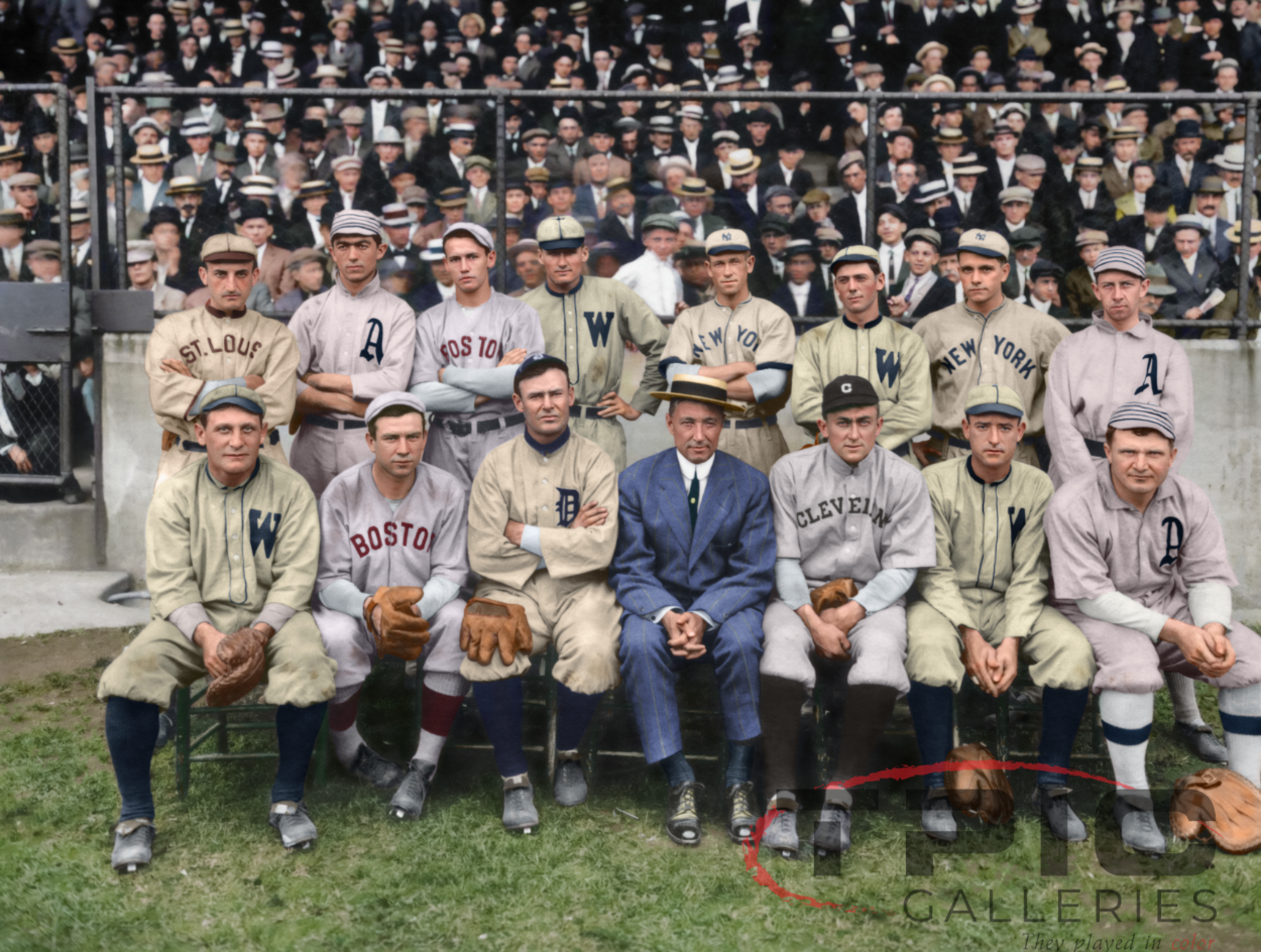
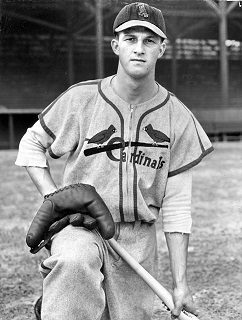
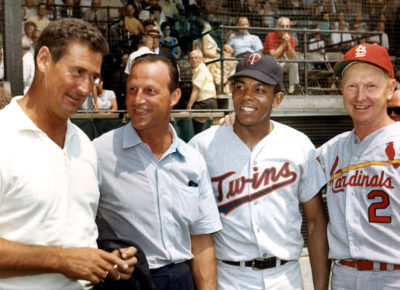
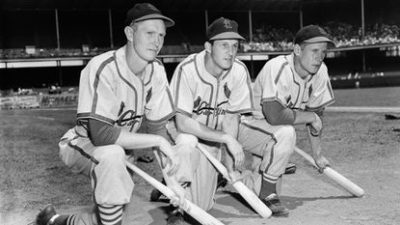
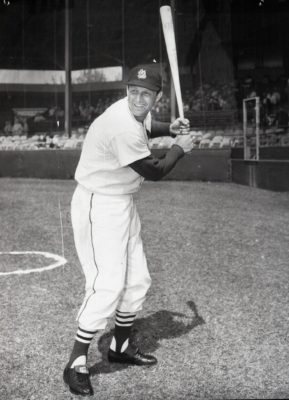

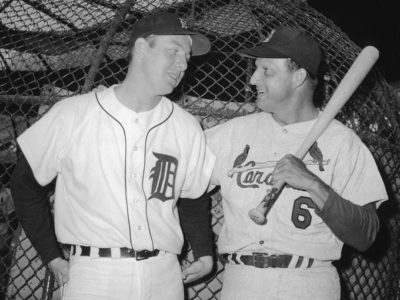
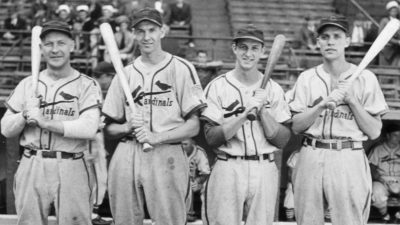
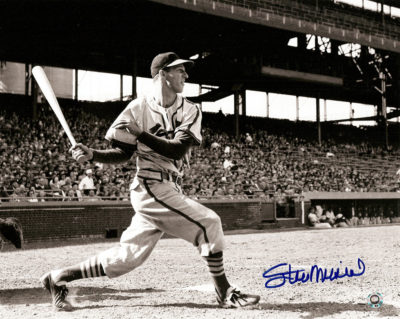
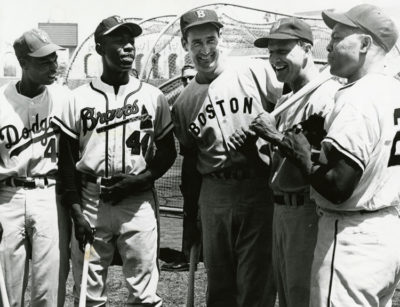
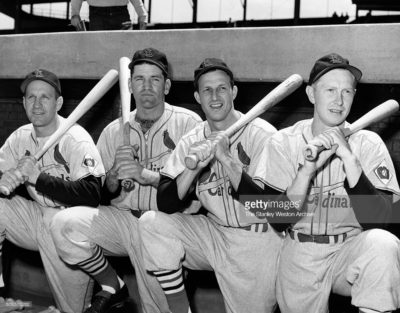
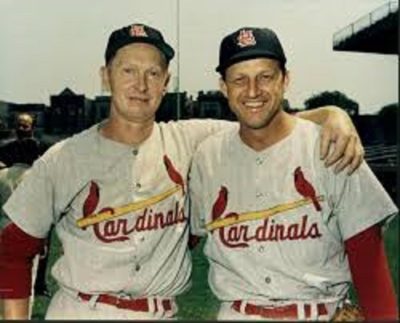
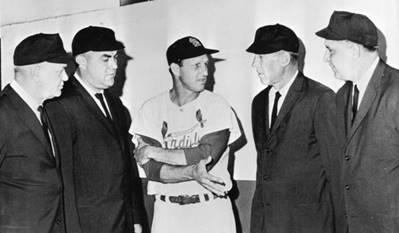
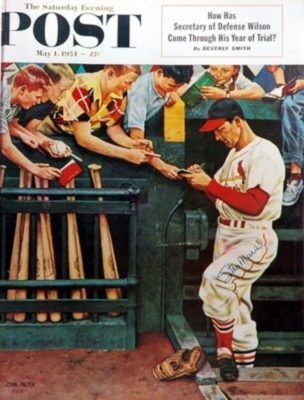
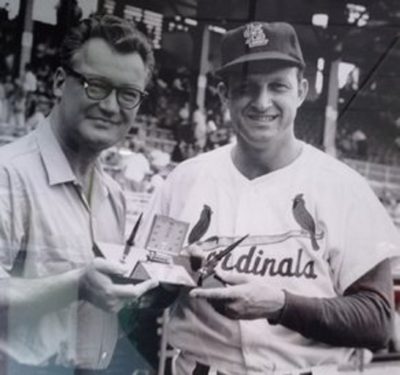
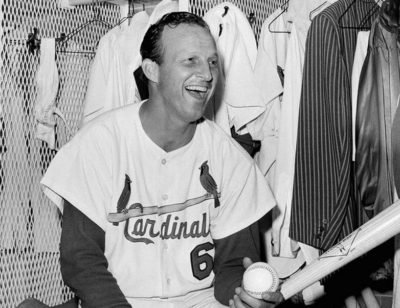
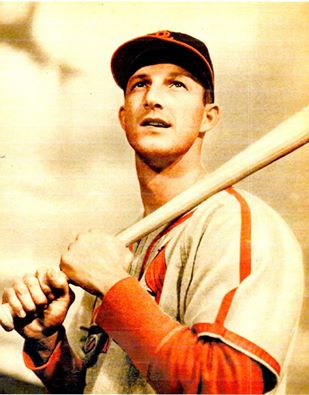
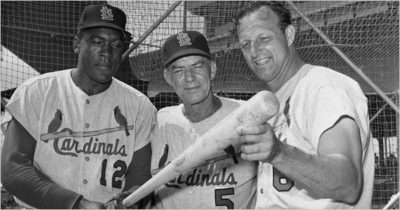
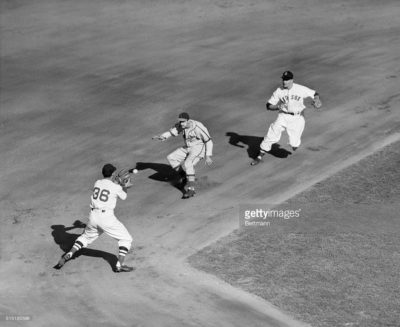
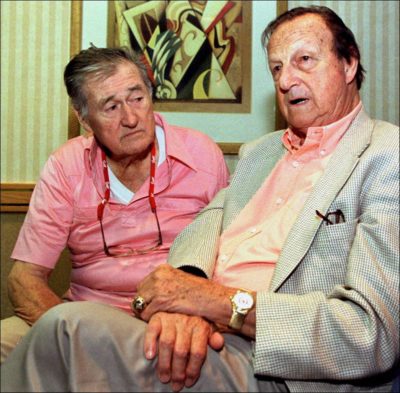
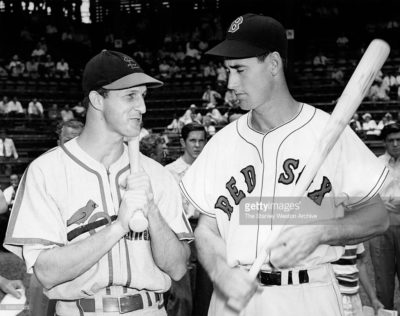
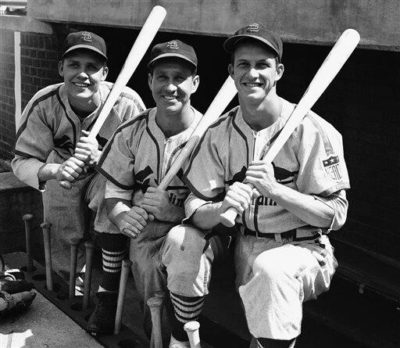
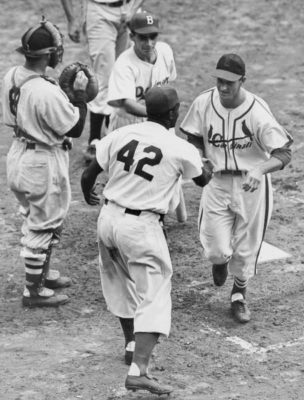

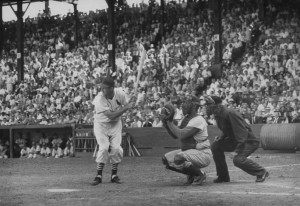

We shouldn’t be too hard on Musial because of those three strikeouts. Ellsworth and Koufax were the best two lefties in the National League in ’63. Ellsworth was tough on all N.L. hitters that year, not just lefties such as Musial. He won 22, lost just 10, and had an ERA of 2.11 — 67% better than the league average. He had 19 complete games in 37 starts. (How many pitchers today will have 19 complete games in their entire careers?) And he allowed just 14 home runs in 290 innings, even though home-run friendly Wrigley Field was his home park.
Thanks David…as a long-time Cub fan, I remember Dick Ellsworth’s remarkable season very well.
Loved Musial, Gary. His remarkable consistency was reflected in his 1815 career hits on the road and 1815 hits at home. Amazing.
As a kid Giants fan, I always figured if a Giants pitcher got Stan on an easy out the first time he faced him in a game, he probably had good stuff that day.
Once Musial was batting for the second time in a game against the Giants, and the announcer, Steve Ellis, said, “Well the first time up, Kennedy induced Stan to hit into a double play.” I almost threw the radio across the room. Musial had hit a bullet right back at Montia Kennedy. Before the giants pitcher was decapitated by the rocket, he threw up his glove in self defense. The ball stuck in the web and Montia threw to first,doubling the base runner off the bag!
Very interesting, Bill…and I admire your recall!
I must admit that if I had ever seen Monty Kennedy’s name before, I had forgotten it. I read now that he had an excellent fastball but poor control. And like hundreds of others, he gave all, or at least part — and perhaps the best part — in service to his country.
Yes, David, Montia Calvin “Monty” Kennedy did serve in World War ll. But he did so in his early 20’s before joining the Giants, at 24, in 1946.
He could be both brilliant and terrible. However, he settled down after becoming a spot starter and relief pitcher. He pitched well in a few outings during the Giants’ stretch run in ’51.
Hi Gary,
You say that Stan Musial is “one of the most underrated players in major league history,” and despite the many accolades he achieved during and after his career, I would agree. So did the editors of Sports Illustrated, who rated him at the very top of that list fifteen or twenty years ago (while putting Mark McGwire at the top of the all-time most overrated).
As mentioned by Herr Schaefer, Stan hit equally well at home and on the road — but as your report reveals he wasn’t nearly as consistent in run production, driving home a total of 1,951 but scoring only 1,949. (Unreal.)
When the Dodgers’ Preacher Roe was asked how to get Musial out, he claimed it was best to “throw him four wide ones then try picking him off first.” That may have been just about the only useful “book” on The Man, along with “Feed him the hard stuff and back up third base.”
Stan was “The Man” all right, in every significant sense. And to think he began his professional career as a pitcher!
Best regards,
Michael